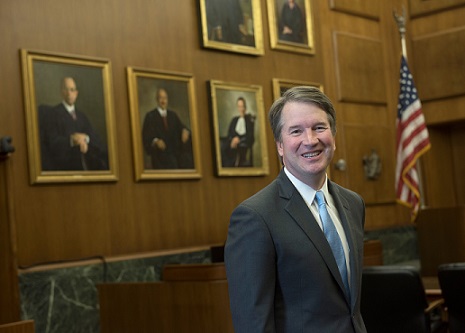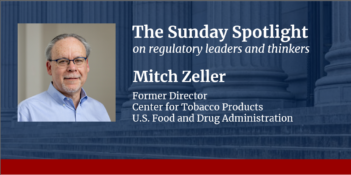
What would Judge Kavanaugh’s confirmation mean for the U.S. Supreme Court’s administrative law decisions?
After Justice Anthony Kennedy announced his retirement from the U.S. Supreme Court in June, President Donald J. Trump nominated Judge Brett Kavanaugh to fill the position. Judge Kavanaugh has served on the U.S. Court of Appeals for the D.C. Circuit for the past 12 years.
As with many nominations to the Court, Judge Kavanaugh’s nomination has stirred some controversy, especially over issues such as abortion and presidential power. The American public is deeply divided over the pick.
Meanwhile, scholars and public interest groups have been speculating on the effect Kavanaugh’s confirmation would have on federal administrative law.
Some politicians support the nomination, noting that Judge Kavanaugh would uphold separation of powers principles and help rein in alleged overreach by agencies. Opponents of the nomination argue that Judge Kavanaugh would undercut environmental protections, erode consumer financial protection regulations, and pose a threat to democracy.
Commentators have also focused on the fate of the Chevron doctrine, which instructs judges in certain cases to defer to reasonable agency interpretations of the law, and which Judge Kavanaugh has suggested should be limited.
This series in The Regulatory Review explores what Judge Kavanaugh’s confirmation could mean for the Supreme Court’s approach to regulatory law and policy, including Chevron deference.
Judge Kavanaugh, Chevron Deference, and the Supreme Court
September 3, 2018 | Kent Barnett, University of Georgia School of Law, Christina L. Boyd, University of Georgia School of Public & International Affairs, and Christopher J. Walker, The Ohio State University Moritz College of Law
How might a new U.S. Supreme Court Justice Brett Kavanaugh review federal agency statutory interpretations that come before him on the Court? To find at least a preliminary answer, we can look to his judicial behavior while serving on the U.S. Court of Appeals for the D.C. Circuit—and there is plenty of relevant Kavanaugh judicial behavior to observe.
Judge Kavanaugh’s Activist Vision of Administrative Law
September 4, 2018 | Robert V. Percival, University of Maryland Francis King Carey School of Law
The Chevron doctrine that reviewing courts should defer to reasonable agency interpretations of ambiguous statutory terms is too malleable, according to Judge Kavanaugh. If judges like what agencies have done, they can find a statutory ambiguity that justifies judicial deference. Yet this perceptive insight on Chevron comes from a judge who rarely defers to agency action. A careful review of Judge Kavanaugh’s opinions indicates that he has not been deferential to agencies even when applying statutes with “broad and open-ended terms.”
Kavanaugh and the Deference Doctrines
September 5, 2018 | Ronald A. Cass, Cass & Associates, PC
Judge Kavanaugh’s appointment should help, not hurt, better formulation of deference rules. His engagement with deference is substantial, clearly articulated, and solidly within the mainstream of scholarly discourse and judicial decisions. Judge Kavanaugh clearly understands that judges should not merely be guided but bound by constitutional and statutory command.
The Ambiguity in Judge Kavanaugh’s Chevron Critique
September 6, 2018 | Cary Coglianese, University of Pennsylvania Law School
Judge Kavanaugh recently criticized Chevron in a book review essay in the Harvard Law Review, taking issue with the view that Chevron requires courts to defer to administrative agencies in instances of statutory ambiguity. Kavanaugh acknowledges that his critique is far from fully developed—one might even say that it is ambiguous. The Senate hearings thus provide an opportunity for Judge Kavanaugh to bring clarity to his critique of Chevron.



